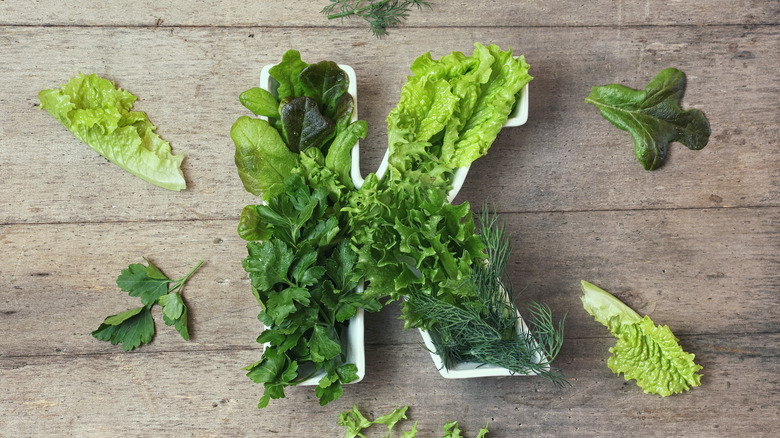Medications That Could Have Negative Interactions With Kale
There was once a time when kale was just a garnish that spruced up salad bars and seafood platters. Today, the tables have turned and kale is the leafy green superstar of salads, smoothies, and even chips. The change of heart towards kale is mostly due to the health benefits it provides. According to Healthline, kale is low in calories but packed with nutrients. Just one cup of raw kale has 134% of the daily value (DV) of vitamin C, which is more than what you would get from eating an orange.
Kale is one of the richest sources of vitamin K available. Just one cup of kale provides 684% of the DV of vitamin K. Additionally, eating kale can help lower your cholesterol levels, lose weight, decrease your risk for heart disease, help lower your blood pressure, and lower your risk for cancer (via Healthline). You may think that everyone should add this superfood to their plate, but eating kale while taking certain medications may do more harm than good.
Vitamin K may interact with blood thinning medications
The vitamin K found in kale is important for normal bodily functions. According to the Harvard T.H. Chan School of Public Health, vitamin K is a building block for proteins that are used in blood clotting and healthy bone formation. Although vitamin K toxicity is rare, vitamin K can counteract the effects of medications called anticoagulants or blood thinners.
Anticoagulants may be prescribed for individuals who are at risk for stroke, heart attack, or pulmonary embolism, according to the Cleveland Clinic. These medications assist the body with breaking down blood clots or they prevent the formation of blood clots that may block blood. Some anticoagulants achieve this by stopping the body's ability to use vitamin K.
Warfarin, the generic brand of Coumadin, is the most widely used blood thinner that works by blocking vitamin K (per Penn Medicine). Mitchell Howard, clinical assistant professor at the University of Toledo College of Pharmacy and Pharmaceutical Sciences said, "vitamin K negates what warfarin is trying to do" (via Everyday Health). You may think that you should avoid kale if you're on a blood thinner, but "your diet needs to stay consistent," according to Howard. This means that if you usually eat kale and take blood thinners, not eating kale all of sudden could cause bleeding or blood clots.


